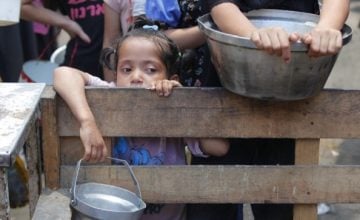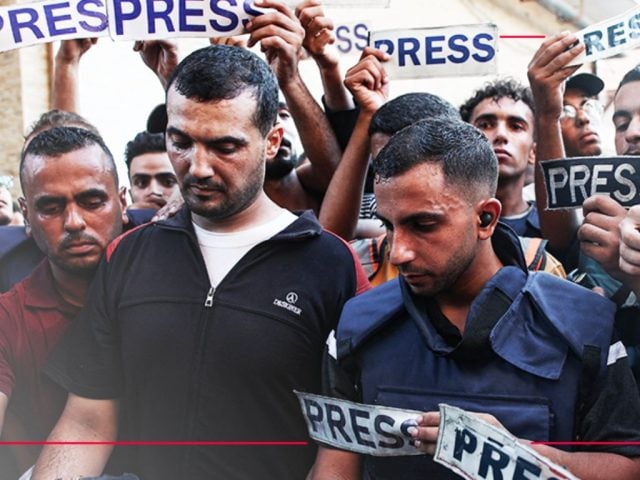The Inter-American Court of Human Rights (IACHR) issued a judgment in which it holds the Ecuadorian State responsible for the disappearance, 17 years ago, of Luis Eduardo Guachalá Chimbo. The sentence was issued on March 26, 2021, however, the Inter-American Court itself released it only on Wednesday, June 23.
In a report by journalist Edgar Romero for RT, what happens with this case is explained in detail.
1.- Internment and disappearance of Guachalá
Guachalá, then 23 years old, has suffered from epilepsy since childhood and also has a disability. The judgment of the Inter-American Court does not specify the type of disability, however, a previous report from the Inter-American Commission on Human Rights (IACHR) indicates that it is mental.
In mid-2003, due to his prolonged illness, he was admitted for the first time to the Julio Endara Psychiatric Hospital, which is public and is located in the Conocoto parish of the Metropolitan District of Quito. He was discharged on July 2 of that year and was told that he should return to medical check-ups and continue with his treatment, which was not possible due to his financial situation; As a result, his health condition worsened.
On Saturday, January 10, 2004, Zoila Chimbo, his mother, took him back to the same hospital. «They were received by the resident doctor on duty and the nursing staff, who took him (Luis) to a bed to inject him with some type of sedative», says a report from the Regional Human Rights Advisory Foundation (INREDH).
At the hospital, they told his mother to come back on Monday, since the young man would be sedated for the rest of the weekend. «On January 12, 2004, Mr. Guachalá Chimbo’s mother went to the hospital, but did not find her son in her room, and when she asked the hospital staff, they gave her contradictory information», says the Court’s ruling. She looked for him in various places in the hospital, they told her that he could be in rehabilitation with other patients and they told her that they would be informing her about his condition by phone.
Mrs. Chimbo contacted hospital personnel by telephone on January 13, 15, and 16, 2004, and they gave her information on the condition of her son. According to information from the hospital, collected by INREDH, the young man was examined those days and they reported that he was «not very communicative, hypoprosexic, bradypsychic thinking, poor content, did not refer to sensory perception, and had memory, calculation, judgment and reasoning deteriorated».
In the last health report on Guachalá, on Friday, January 16, it is reported that he underwent a new examination and it was determined that he was well, had not had seizures, was sleeping and eating properly.
On Sunday, January 18, his mother went to the hospital again to try to see her son and there a nurse informed her that he had run away the day before, that «that was her problem» and that «they had searched the entire sector and that they had not found him». In the shift change report on Saturday, January 17, it is indicated at 3:30 p.m. that Guachalá «leaves the hospital, is searched for, cannot be found».
During the investigations, they also discovered that, on January 15, Guachalá had suffered a «fall in the bathroom, presenting a wound that compromises the skin and subcutaneous cellular tissue located in the left ciliary region of approximately 3 centimeters».
2.- Actions before the Ecuadorian Justice
Mrs. Chimbo looks for her son around the hospital and reports his disappearance to a Community Police Unit in Guangopolo; on January 21, she also reported it before the Pichincha Judicial Police.
Due to the limited steps taken by the Judicial Police to determine the whereabouts of Guachalá, in November 2004 they presented a habeas corpus before the Mayor’s Office of the Metropolitan District of Quito. Due to the continued lack of response, in 2005 they filed an appeal before the Constitutional Court, which ruled that the investigations should continue until Guachalá was found.
On July 19, 2006, the Judge of the Eighteenth Criminal Court of Pichincha ordered the filing of the case initiated by the Pichincha Judicial Police.
3.- Case before the IACHR and the Inter-American Court
Given the dismissal of the case in the Ecuadorian courts, in March 2007 a petition was presented to the IACHR, which was admitted in November 2010.
In July 2019, the IACHR presented the case to the Inter-American Court, which called the hearing for November 25 and 26, 2020, in which Mrs. Chimbo participated.
4.- The judgment on the Guachalá case
In its judgment, delivered four months after the hearing, the Inter-American Court concluded that the admission and medical treatment received by Guachalá Chimbo in the hospital did not have her informed consent; «It was not accessible, nor of quality, nor were the necessary measures taken to guarantee his right to life and integrity, nor the right to health without discrimination».
It was determined that “the State violated the rights to the recognition of legal personality, life, integrity, personal freedom, dignity, private life, access to information, equality and health, in relation to the obligations to respect and guarantee rights without discrimination and the duty to adopt provisions of domestic law”.
The Inter-American Court also indicated that the State failed to comply with its obligations to carry out a serious search for the alleged victim, investigate what happened with due diligence, and guarantee an effective habeas corpus to attend to the disappearance of Guachalá.
For these reasons, the Inter-American Court indicated that «the rights to an effective recourse, to the truth, to judicial guarantees and to judicial protection were violated».
5.- Repairs
In the judgment, the Inter-American Court ordered Ecuador some measures of reparation, which, among other things, include:
– Investigate, determine, prosecute and, where appropriate, punish all those responsible.- Determine the whereabouts of the victim.- Grant Zoila Chimbo Jarro and Nancy Guachalá Chimbo (the victim’s sister) a sum of money, for expenses for psychological and / or psychiatric treatment, as well as for medications and other related expenses that they may need.- In the event that Mr. Guachalá Chimbo is found alive, provide him with free, immediate, timely, adequate and effective medical and psychological and / or psychiatric treatment.- Carry out a public act of recognition of international responsibility.- Develop a protocol of action in cases of disappearances of people hospitalized in public health centers.- Pay compensation for pecuniary and non-pecuniary damage.
The case of Paola Guzmán
Last year, the Inter-American Court also ruled against the Ecuadorian State in the case of Paola del Rosario Guzmán Albarracín, a teenager who suffered sexual violence at the school she attended, committed by the vice-rector of the institution, which resulted in the suicide of the victim.
Because of that sentence, on December 9, 2020, the then-President Lenín Moreno recognized the responsibility of the Ecuadorian State in an act in which Petita Albarracín and Dennise Guzmán, Paola’s mother and sister, respectively, were present.
«On behalf of the Ecuadorian State, I ask you to accept our apologies for this immense pain», Moreno said at that moment.











